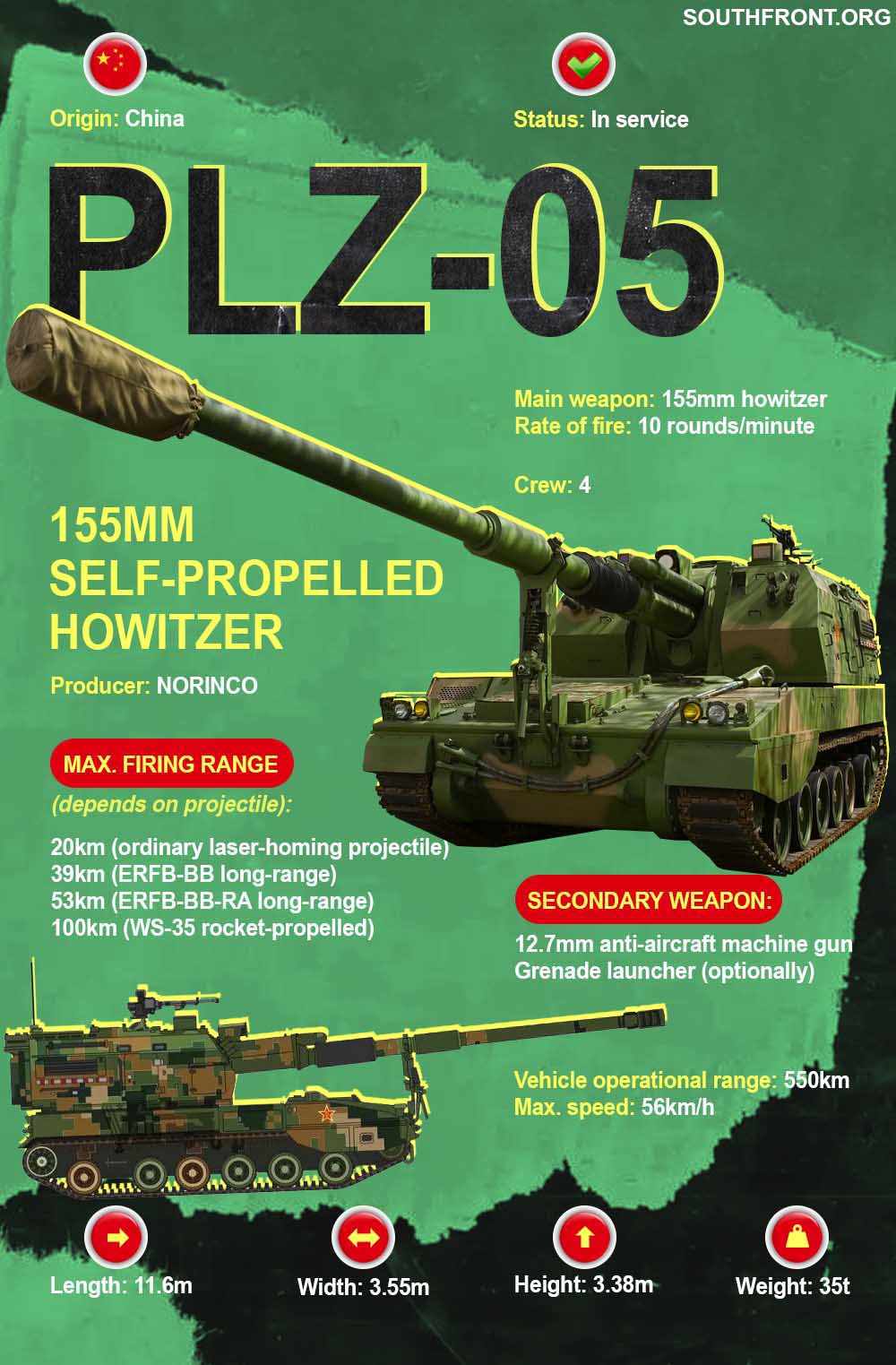The PLZ-05 (also known as Type 05) is the Chinese 155 mm self-propelled howitzer. It was developed for the People’s Liberation Army to replace the Type 59-1 130mm towed gun.
0 $
2,500 $
5,000 $
FEBRUARY 2026





https://uploads.disquscdn.com/images/a91804c7023a0ea1182447aa3eec50523c2dfbd6defa248a1bb22811204abe86.jpg
This is a Faraday sleep canopy frame with 15 aluminum Mylar sheets. For the roof, walls, door and floor. I’m planning to drill some of the sheets prior to unfolding them with a small diameter bit to create ventilation screening that won’t alter the 5G, EMF, EMR counter measure capability.
A similar computer work station can be built using a 10’x10′ canopy. To mitigate potentially harmful carcinogen and other negative health effects from 5G, EMF & EMR pollution. To avoid damaging the body, and to help it heal from damage free from high levels of energy pollution.
If I’m able to complete my transition out of transportation at $50,000/yr to finance at $250,000/yr. I’m planning to build buildings, including residential, designed for 5g/EMF/EMR harmful energy mitigation.
can this thing protect from a nuclear radiation fallout
Yes, and EMP.
with an add-on kit
There’s a difference between waves and particles. A Faraday cage protects against EMF/EMR waves. For particles from a nuclear or atomic detonation your need dense mass shielding. 6 inches of steel, or 12 inches of sand or concrete, or 3 feet of earth.
good then, i will try to keep this in mind when a nuclear war starts
And solar flare.
100 km is a pretty remarkable range. Some details of the various kinds of ammunition would be appreciated.
I have posted the details above. They use HE and star burst fragmentation and with base bleed can increase to 40 kms. Only the Iran and DPRK versions have two separate rows of smoke grenade dischargers; a remote weapon station armed with two AGS-17 grenade launchers; a pivoting mount for two MANPADs.
” China recently revealed two new artillery shell designs. One was an improved base bleed technology to increase range of 152mm shells to 28 kilometers. Base bleed works by having some solid fuel in the base of the shell burn after firing, releasing gas that reduces drag and extends range.
China has long made incremental improvements to its artillery and ammunition. But another recent announcement was, well, somewhat incredible. This was the WS-35, an 18 kg (40 pound) 155mm guided shell. Using the Chinese GPS (Beidou) and INS (for backup), the WS-35 is described as having a max range of 100 kilometers and accuracy of 40 meters (125 feet). No one outside China has witnessed the WS-35 in action, so it’s uncertain how well it works or whether the announced capabilities are accurate.
WS-35 is mainly intended for the PLZ-05, which is known to be capable of firing rocket assisted shells with a range similar to shell designs in other nations (50-60 kilometers). It’s unclear how China has achieved a 100 kilometer range with a 155mm shell. The PLZ-05 is China’s primary self-propelled artillery system and is a 35 ton vehicle that looks like a tank but is armed with a 155mm howitzer.
Meanwhile, the WS-35 already has competition. The American Excalibur GPS shell weighs 45.5 kg (100 pounds), has a range of 40-60 kilometers (depending on how long the howitzer barrel is), and an accuracy of 10-20 meters. Excalibur shells cost $50,000 each, have been in service since 2007, and are to be replaced by the new PGK (Projectile Guidance Kit) shells.
PGK is actually a large fuze that screws into the front of a 155mm or 105mm shell. This longer fuze contains a GPS and small fins to guide the shell to a precision hit. It is less precise than Excalibur. That is, the PGK will ensure that the shell lands within 30 meters of the target. If it does not hit within 150 meters, PGK deactivates and the shell does not explode. An unguided shell will normally land within 300 or more meters of where it is aimed. An Excalibur shell lands within 10 meters of the target but PGK costs only $3,000 each and turns any shell into a GPS guided one. The army sent the first PGKs to Afghanistan in 2013, after successful testing in the United States. The big question is how important will the troops find the accuracy differences of Excalibur and PGK.”
– Artillery: The Chinese Magical Mystery Shell –
https://www.strategypage.com/htmw/htart/20131128.aspx
The Norinco PLZ-05 155mm SP is a very capable artillery systems and is similar to DPRK M-2018 and Iranian Raad 2 (Thunder) which was introduced in 1997 and is the only of one the three that has seen real combat. It also shows close design cooperation between the three allies.
Generally the PLA, DPRK and Artesh 155mm SP use standard 155 mm M107 high-explosive projectiles, a maximum range of 18.1 km can be achieved but, with the enhanced projectiles, longer
ranges can be achieved. Maximum stated rate of fire is 4 rds/min. Weapon
evaluation is from -3 to +75°. When deployed in the firing position two
spades are lowered either side of the hull rear of Thunder-2 to provide
a more stable firing platform.
Thunder-2 was tested early in 1997 when Iran claimed that it had a
range of more than 30 km, a maximum rate of fire of 5 rds/min and a
maximum road speed of up to 70 km/h.
Iranian DIO stated that both the 122 mm Thunder-1 and 152 mm
Thunder-2 are fitted with a laser range-finder, semi-automatic loading
system and a state-of-the-art fire-control unit. The laser range-finder
could be for direct fire target engagements.
https://uploads.disquscdn.com/images/1f99250ee76860253f069677769b929744fcabbd2566ae6426f45e2e21347d73.jpg
DPRK M-2018 The blue dots show the similarity with Iranian Raad 2
https://uploads.disquscdn.com/images/39e0790510901c6f439a7e7746b85824b939b79e3085686df71727e293f6275d.jpg